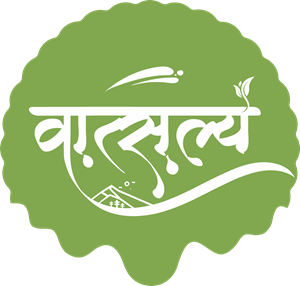Milk in Every Sip: Unveiling the Power of Milk for Daily Nutrition in Indian Families

Milk – a simple beverage with a powerhouse of nutrients! For generations in India, milk has been a cornerstone of a healthy diet, holding both cultural significance and immense nutritional value. From childhood breakfast staples like porridge and cereal to creamy curries and refreshing buttermilk (chaas), milk finds its way into countless dishes across the Indian culinary landscape. But what exactly makes milk so beneficial, and how does it contribute to the daily nutritional needs of Indian families?
A Treasure Trove of Nutrients:
Milk is a rich source of essential nutrients crucial for growth, development, and overall well-being. Here’s a closer look at some of the key components and their benefits (Source: National Dairy Council):
- Calcium: The champion of strong bones and teeth, calcium is particularly vital during childhood and adolescence for building a sturdy skeletal system. Milk boasts a natural and readily bioavailable form of calcium, making it an excellent dietary source (Source: National Institutes of Health Office of Dietary Supplements).
- Protein: The building blocks of life, protein is essential for tissue repair, muscle growth, and enzyme function. Milk is a complete protein, meaning it contains all nine essential amino acids the body cannot synthesize on its own (Source: Harvard T.H. Chan School of Public Health).
- Vitamin D: Also known as the “sunshine vitamin,” Vitamin D plays a crucial role in calcium absorption and bone health. While sunlight exposure is a primary source, milk is often fortified with Vitamin D, making it a valuable dietary contributor (Source: Mayo Clinic).
- Vitamin B12: Essential for nervous system function and red blood cell formation, Vitamin B12 deficiency is a concern, particularly among vegetarians. Milk is a natural source of Vitamin B12, making it a valuable dietary inclusion (Source: National Institutes of Health Office of Dietary Supplements).
- Potassium: An electrolyte that supports healthy blood pressure regulation and muscle function, potassium is another important nutrient found in milk (Source: National Institutes of Health Office of Dietary Supplements).
Addressing Nutritional Needs in Indian Families:
According to the National Family Health Survey – 5 (NFHS-5) conducted in India (2019-2021), micronutrient deficiencies remain a concern, particularly among women and children (Source: Ministry of Health and Family Welfare). Milk consumption can play a significant role in addressing these deficiencies:
- Calcium Deficiency: NFHS-5 data reveals high rates of calcium deficiency, especially among women and adolescent girls. Milk’s readily absorbed calcium can help bridge this gap and promote bone health.
- Protein Deficiency: While protein intake in India has improved, certain populations still fall short. Milk, a complete protein source, can be a valuable addition to vegetarian and protein-restricted diets.
- Vitamin D Deficiency: Vitamin D deficiency is a widespread issue in India. Fortified milk can be a crucial dietary source to support bone health and overall well-being.
Beyond the Basics: Milk for Every Age Group
Milk offers a range of benefits throughout life:
- Children: Building strong bones and teeth, supporting cognitive development, and providing essential protein for growth are just a few of the ways milk benefits children.
- Adults: Maintaining bone health, supporting muscle function, and even aiding in weight management are potential benefits of including milk in an adult diet.
- Seniors: As bone density decreases with age, milk’s calcium and Vitamin D content can help maintain bone health and prevent osteoporosis in older adults.
Choosing Wisely: A Note on Milk Varieties
With a vast array of milk options available, choosing the right one can be confusing. Here’s a quick guide:
- Full Cream Milk: Provides the most natural fat content but is higher in calories.
- Toned Milk: A popular choice in India, toned milk offers a balance of protein and calcium with reduced fat content.
- Double Toned Milk: Even lower in fat content than toned milk, a suitable option for those watching.
In conclusion, incorporating milk into your daily family diet in India is a simple yet significant step towards ensuring well-rounded nutrition. Milk serves as a readily available source of essential nutrients like calcium, protein, and Vitamin D, which can help address common deficiencies observed in the Indian population. From promoting strong bones and teeth in children to supporting muscle function and overall health across all age groups, milk plays a vital role in fostering a foundation of well-being for your entire family.


